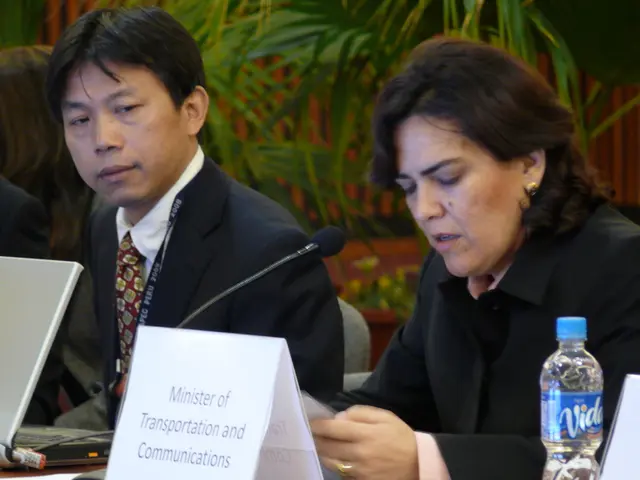Active public engagement and Artificial Intelligence
The rapid evidence review titled 'What do the public think about AI?' was published just before the UK Global Summit on AI Safety, highlighting the need for the public to have a meaningful say in decisions that affect their everyday lives. As AI transcends borders and affects various aspects of society, it is crucial to consider examples of public engagement from different regions and contexts.
Professor Noortje Marres pointed out that there was no mention of mechanisms for involving citizens and affected groups in the governance of AI in the official Summit communiqué. However, numerous examples of public engagement in AI policymaking can be found worldwide.
The Organisation for Economic Co-operation and Development's 'Institutionalising Public Deliberation' framework, Belgium's Ostbelgien model, Paris's model for a permanent citizens' assembly, and Bogota's itinerant assembly are just a few examples of such initiatives. Contested topics, those that can threaten civil and human rights, require in-depth public participation, as argued by Professor Gilman from the University of Baltimore.
AI tools are being used to facilitate public participation in policymaking. In Fort Collins, Colorado, AI processed over 4,000 detailed citizen responses on a land-use issue, enabling broad public input to shape council decisions. Similarly, Bowling Green, Kentucky, used AI to gather views from nearly 8,000 residents regarding their vision for the community's future. At the national level, France's Citizens’ Convention on the End of Life employed AI-powered chatbots to help the broader public understand complex policy recommendations in accessible language.
Multiple countries have developed or are developing AI regulatory frameworks with varying degrees of public and expert involvement. For instance, Kenya's National AI Strategy and Code of Practice, Nigeria's draft National AI Policy, and South Korea's AI Act reflect top-down governance initiatives shaped through consultation phases. The European Union advocates a multistakeholder approach involving governments, industry, research institutions, and civil society to lead global AI governance.
An open letter, signed by international organizations and coordinated by Connected by Data, the Trades Union Congress, and Open Rights Group, called for a wider range of voices and perspectives in AI policy conversations, particularly from regions outside of the Global North. The UK Global Summit on AI Safety, held at the end of 2023, primarily focused on 'frontier' AI models, with few civil society organizations invited.
The People's Panel on AI, a randomly selected group of people broadly reflective of the diversity of the population in England, wrote a set of recommendations for policymakers and the private sector, emphasizing the need for a system of governance for AI in the UK that places citizens at the heart of decision-making. Marietje Schaake, a member of the AI Advisory Board for the United Nations, suggested improving openness and participation by involving a random selection of citizens in any advisory body on AI.
The evidence review found that people expect their views, in the full spectrum of their diversity, to be taken as seriously as those of other stakeholders, including in legislative and oversight processes. As AI continues to shape our lives, it is essential to ensure that the public has a meaningful role in shaping its development and use. The next instalment of the blog series will share research on and experiences of public participation in data and AI policymaking from different countries and at different scales.
References: [1] Connected by Data [2] AI Governance in Africa [3] European Commission
- The need for citizens and affected groups to have a meaningful say in AI governance, particularly in policy-and-legislation, has been highlighted, as rapid advancements in technology present politics with complex decisions that affect people's everyday lives.
- In order to ensure general-news coverage of a wide range of voices and perspectives in AI policy conversations, international organizations have called for increased openness and participation, including using AI tools for collecting public opinions and implementing mechanisms for public engagement in policymaking, such as random citizen selection in advisory bodies.




